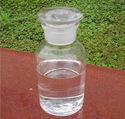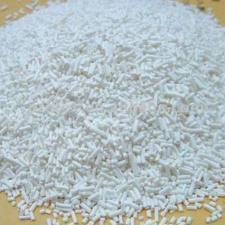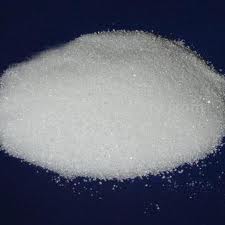Products
 News
NewsWhat is sodium benzoate? Is it bad?
What is Sodium benzoate, and should you be worried about ingesting it? The chemical is a preservative commonly found in foods most people consume daily, usually beverages such as sodas and juice drinks that are acidic. It's also found in items such as pickles, salsa and dip, and can turn up in cosmetics and medicines. Sodium benzoate is produced by a reaction of benzoic acid with sodium hydroxide, which makes it disolve in water.
Under acidic conditions, sodium benzoate inhibits growth of bacteria, mold and yeast, extending a product's shelf life, says Randy Worobo, associate professor of food microbiology at Cornell University in New York. "Without it a product's shelf life is much shorter, and that adds costs to the producer," he said.
While BENZOIC ACID is found naturally in low levels in cranberries and other foods, the sodium benzoate listed on a product's nutrition label is typically synthesized in a lab.
Consumed under normal conditions it poses no great health dangers, says Don Schaffner, professor of food science at Rutgers University in New Jersey. "Sodium benzoate is still actively being studied, but in a comprehensive review [researchers] concluded that at levels being used in foods it doesn't pose a risk."
The Food and Drug Administration limits Sodium benzoate to concentrations of 0.1% by weight, and Worobo says most foods have concentrations far lower--more like 0.025% to 0.05%.
But Schaffner says that doesn't mean it's OK to take a bath in the stuff, although he adds, "It's my understanding that it's not fat soluble," he added, "so it won't concentrate in the body."
When Sodium benzoate combines with ascorbic acid (vitamin C) benzene can form, which is a known carcinogen. Factors such as heat and time can affect its development. Unless you're drinking gallons of soda and Skinnygirl Margaritas every day, Schaffner says, your risk of reaching dangerous levels is pretty low. And if you live in an urban area you're probably sucking up benzene via smog anyway.
Natural alternatives to Sodium benzoate do exist, Worobo says. One product on the market is called Natamax and is used in foods such as breads and packaged shredded cheese. "The cost is significantly higher than that of sodium benzoate," he adds, which is probably why most food manufacturers go with the non-natural stuff.
So if processed foods are part of your normal diet and some chemically produced preservatives don't bother you, drink away--and of course, drink responsibly.






